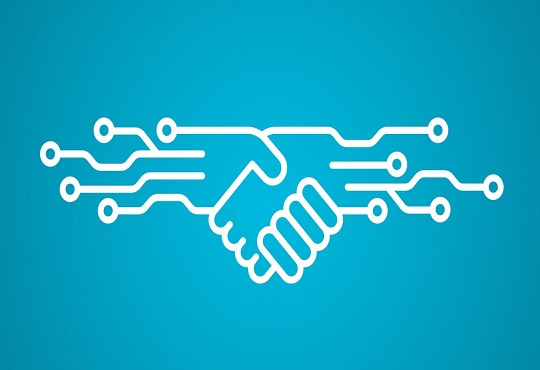Smart Contracts to Establish a Safe and Transparent Healthcare Model
Abhrasnata Das | Wednesday, 14 September 2022, 13:33 IST
 Blockchain Healthcare Smart Contracts establish a safe and transparent network. Thanks to smart contracts, today a new doctor doesn’t have to use unreliable channels like telephone or look around for a previous doctor to acquire a patient's data — he can get access to it just with one fingertip.
Blockchain Healthcare Smart Contracts establish a safe and transparent network. Thanks to smart contracts, today a new doctor doesn’t have to use unreliable channels like telephone or look around for a previous doctor to acquire a patient's data — he can get access to it just with one fingertip.
Smart contracts are currently assisting in the creation of a brand-new digital health business while generating novel, autonomous, immutable systems. With the use of blockchain-based smart contracts, a patient's private information may be kept in a blockchain ledger in a variety of ways that are more practical for them. Some information can be safely encrypted, including anamnesis of life, disease, exams, lab tests, and prescription drugs. After entering all the data into the blockchain, the patient receives the private key for data access, giving them complete ownership over their personal records.
Blockchain Healthcare Smart Contracts are now enabling big advantages by providing easy accessibility, approachability, transparency for both sides — doctors and patients. Let’s now look into the key advantages that smart contracts are bringing in for the healthcare industry.
Supply Chain Integrity
Forbes estimates that every year, counterfeit pharmaceuticals worth $200 million find their way into the healthcare industry. When people use these bogus medications, it can be fatal, costing hospitals and pharmacies significant sums of money.
Ineffective supply chain procedures that can't trace a drug's source in real time make it possible for counterfeit medications to enter the market. The usage of smart contracts, digital identities, and IoT devices can enhance supply chain data. These technologies make it possible for every step in the supply chain to precisely and, in some circumstances, automatically report on the whereabouts of pharmaceuticals.
Specific temperatures are required for the storage of some drugs. If these temperature standards were satisfied throughout the supply chain process, healthcare practitioners need to know. IoT gadgets, such as those produced by Everyware, can continuously monitor the temperatures of solutions in storage. Hospitals can easily obtain this information because it may be stored on-chain.
Health Record Maintenance
Records and information may be kept in smart contracts and kept on a digital ledger. This implies that a patient would be able to transfer from one hospital to another without difficulty or the need to complete multiple documents. The patient's preferred doctor may then access the records on the blockchain network.
Many databases containing patient data are used by hospitals and healthcare organizations. These, however, could be too constrictive to permit the global exchange of knowledge that could save lives. Without blockchain technology and smart contracts, it may take a while for this information to reach its intended destination, and it might even be compromised.
Hospitals and research facilities throughout the world would have access to this data if it were housed in a smart contract and retained on the blockchain. If enough people adopted the technology, anyone could go into any hospital in the globe for treatment, and if they produced their private key, the hospital would instantly have access to their information.
Telemedicine
The medical discipline of telemedicine is expanding daily. It enables medical professionals to communicate with patients using electronic devices like mobile phones and other Internet of Things (IoT) devices. It is mostly employed to care for terminally sick patients.
Doctors can monitor medication compliance using telemedicine and compile real-time data measures of their patients' illnesses. These contemporary developments are improving patient outcomes while increasing interoperability and lowering administrative inefficiencies.
Telemedicine can have drawbacks, too, as hackers frequently attack the systems used.The security and privacy of a patient's information as well as other significant healthcare data may be guaranteed via the use of smart contracts. To share and safeguard the data, smart contracts may be deployed widely and saved on the blockchain. They may also assist with data upkeep and make sure that patients' confidential information is maintained safely and openly.
Future Perspective
The pharma business has encountered difficulties with data protection and sustainability, but smart contract applications have already demonstrated their capacity to solve these problems. Big pharma businesses have successfully tested blockchain-based smart contracts in a variety of supply chain and clinical trial applications.
The pharma business is becoming more and more aware of smart contracts, and the present trends point to increased use of them in the years to come. They might flourish the greatest in settings that value data veracity, information exchange effectiveness, and privacy.
To continue to offer services and treatments in a competitive manner in the future, pharmaceutical businesses and their supply chains will need to adjust their business practises to keep up with these generational shifts. Parallel to this, operational, financial, and cultural barriers to the use of blockchain technology must be overcome.




